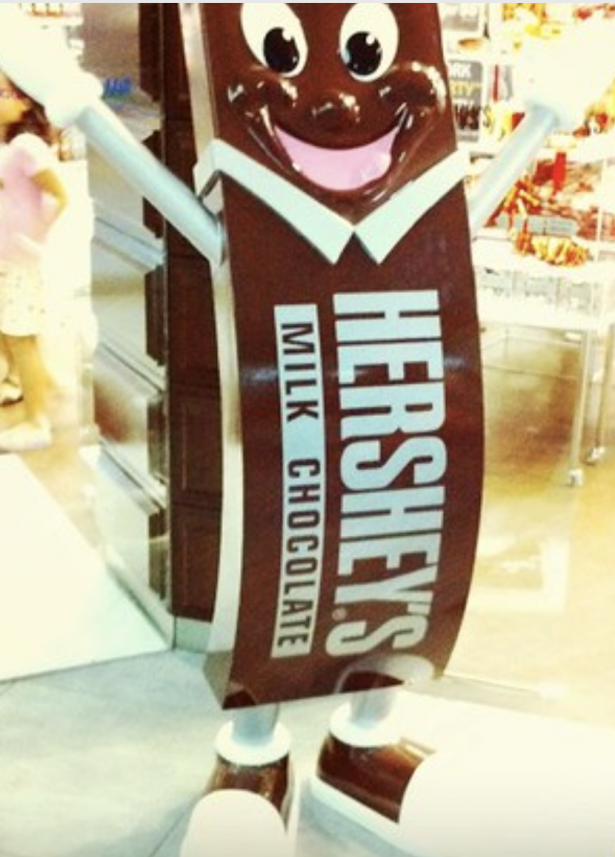Around 1,300 workers at a Hershey’s candy manufacturing plant in Stuarts Draft, Virginia, are voting on whether to unionize, in a move organizers say is led by older workers seeking to ensure good benefits for newer employees.
The ballots for the mail-in election to join the Bakery, Confectionery, Tobacco Workers and Grain Millers’ International Union will be sent to workers on 24 February, with results to be counted on 24 March.
The Hershey Company is publicly opposing the effort, encouraging workers to vote against it and hiring the union-busting Labor Relations Institute to hold captive audience meetings with workers. The LRI has also created an anti-union website ahead of the election, and reportedly made “union-free” lawn signs to distribute throughout the community. Workers at two of sevenHershey plants in the US are currently represented by unions.
A worker at the Virginia plant, who asked to remain anonymous for fear of retaliation, said the union organizing drive began in September. The worker said employees suffer from a lack of respect and dignity on the job, grueling work schedules and conditions, and a two-tier system in which younger and newer workers are paid less than previous groups of employees.
The union drive is being led by longtime workers nearing retirement, who are trying to ensure incoming workers are afforded the same pay, benefits, and working conditions they received when they began.
“When you work seven days a week and you don’t know when you’re getting a day off, you’re just living so you can go to work,” said the worker. “We’re not the happy place to work that you would think a chocolate plant would be right now.”
The worker described a strict disciplinary attendance system that reprimands workers for taking sick days they have accrued or for leaving during a shift due to a medical emergency. The company then requires mandatory counseling and drug testing if workers accrue too many absences.
The worker also criticized practices that kept employees at lower pay scales by restricting access to training programs, and modifications that reduced workers’ eligibility for premium pay on weekends.
“It’s a broken system on training, attendance, and then we have the administration simply not listening to people and their concerns,” said the worker. “They don’t care about us. They look at us as robots.”
A spokesperson for Hershey responded to the unionization drive and working condition complaints by saying the company is “proud to have created a culture that empowers our team members to speak openly and directly with leadership and ultimately drive change within the organization”.
They added: “While we respect our team members’ right to make an educated decision on whether they want to be represented by a third-party like a union, we believe the insertion of a union would be counterproductive and undermine the open and collaborative environment that has allowed the Stuarts Draft plant to thrive for nearly 40 years.”
The worker at Hershey emphasized the fear of retaliation for union activity that they and other workers have faced throughout the union drive, while being forced to attend meetings held by anti-union consultants.
“I walk in every day expecting to be fired. That’s something I’ve carried with me over the months,” added the worker. “I just feel a sense of violation of being forced into these meetings and listen to what I call propaganda. I never dreamed that I would experience something so negative in my life as being forced to go to these meetings.”
The BCTGM union has criticized Hershey’s conduct throughout the organizing drive, including the timing of a longtime plant manager’s departure. Hershey says he left due to a planned retirement.
“They’ve given the impression of surveillance with union activity and they went out and hired the very notorious union-busting law firm, consultants at the Labor Relations Institute,” said John Price, the director of organizing at the BCTGM International Union. “They are going around soliciting grievances from the workers with the implied promise that they can fix them without a union, and they coerce workers by superficially fixing some of these problems.”
Price explained some workers have gotten the hired consultants from the LRI confused with the National Labor Relations Board, and that workers have been questioned about union activity that was conducted in a private Facebook group for workers interested in unionizing. He expressed intent to file several unfair labor practice charges with the NLRB.
A second worker at Hershey, who also asked to remain anonymous, said that Hershey’s workers were motivated to unionize after their breaks were reduced and their overtime pay cut.
“They think of us as machines that just work seven days a week,” said the worker. “They can invest more money to have more capacity so we don’t have to do that all the time. That’s the biggest issue for most people, they’d like to have a life and see their family.”
The worker also criticized Hershey’s move to reward growing profits during the pandemic with t-shirts instead of higher pay.
In 2020, Hershey reported a revenue of nearly $8.15bn, up from $7.99bn in 2019, and a profit of about $1.28bn in 2020 compared to $1.15bn in 2019. In 2021, Hershey saw a record year of production and over $1.47bn in profits.
“That kind of stuff just really bothers people, to know that all that profit is generated by us and here’s a T-shirt,” added the worker. “I’d like more compensation for the profits we generate.”


Spread the word